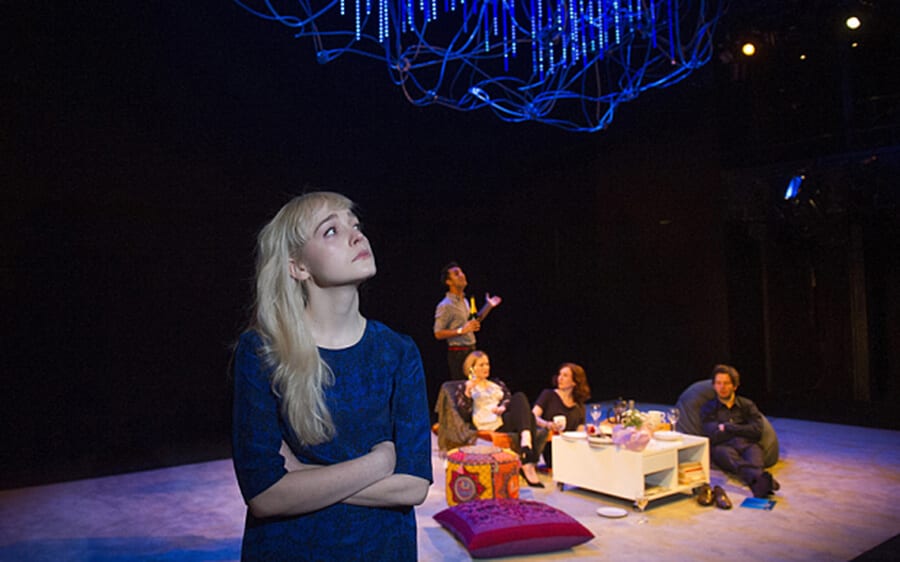Tom Stoppard is one of Britain’s most prolific playwrights, and one of the few to have produced a new piece in every decade that the National Theatre has been in existence. Often lauded as one of the finest dramatists still writing in English, The Hard Problem is Stoppard at his very best, sparkling dialogue and thematic cleverness to be found in abundance.
Stoppard’s complexity and multifaceted ideas do not lend themselves to a neat, simple plot outline. The Hard Problem, in its barest form, follows a young woman called Hilary, a psychology academic on a mission to answer questions such as: where does consciousness come from? What makes us altruistic? What does it mean to be “good”? In an age where science is increasingly able to explain away the mysteries of the human condition, the characters argue about whether there is anything more to our emotions and behaviour than neurones and chemicals. As the characters suffer personal and professional highs and lows, this very hard problem remains the lynchpin of the play: if there is nothing but matter, then where does consciousness come from?
As is to be expected – with many having referred to Stoppard as a modern Shakespeare – the writing is sublime. A perfectly paced, witty script drives the production forward. Stoppard refuses to adopt a lofty tone, and the elaborate scientific and philosophical questions are posed to the audience in a compelling, typically creative way. Rather than favouring some characters (and thus some points of view) more than others, Stoppard gives them all equally loud, equally eloquent mouthpieces, making the play rather like a dramatised debate. In this sense, it both cheats and exceeds expectations: Stoppard hides his own view and leads the audience down unforeseen paths.
The acting was very good across the board. Olivia Vinall was charismatic as Hilary, the atypical psychology researcher with a shady past and a painful secret. However, she assumed a slightly affected, deep voice in her portrayal of Hilary at times, which did not compliment the naturalistic tone of the piece as a whole. Damien Molony was darkly comic as the cooly scientific Spike, almost personifying the discipline itself, presenting the facts without sugar coating them. Another memorable performance was delivered by Parth Thakerar, the Cambridge neurobiologist and ultimate materialist. Despite thoroughly decent performances, however, in The Hard Problem the emotional resonance of the characters does seem secondary to the ideas Stoppard presents. Certain decisions remained unexplained; particular habits seemed out of place. The people on stage are perhaps merely vehicles for Stoppard’s own arguments, making the action on stage less dramatic, but no less intellectually stimulating to watch.
Overall, whilst The Hard Problem prioritises metaphysical questioning over emotional intensity, it remains a highly original, complex production that proves that the magic of Stoppard has endured.

